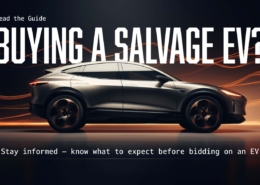 https://auction.ridesafely.com/images/2020/02/salvage-title-car-banner-pros-risks-strategies.jpg
865
1440
RideSafely
/images/2025/01/ridesafely-logo.svg
RideSafely2025-07-04 13:00:552025-07-11 20:49:15Buying a Salvage Title Car: Smart Move or Risky Decision?
https://auction.ridesafely.com/images/2020/02/salvage-title-car-banner-pros-risks-strategies.jpg
865
1440
RideSafely
/images/2025/01/ridesafely-logo.svg
RideSafely2025-07-04 13:00:552025-07-11 20:49:15Buying a Salvage Title Car: Smart Move or Risky Decision?According to the NAAA (National Auto Auction Association), around 9 million automobiles are sold at auctions across the US every year. That’s a lot of cars being bought and sold at auctions in what appears to be not many auction sites. A study carried out in 2018 found that there are just 139 used car auction sites in the United States that are open only to car dealerships. Since going to a general car auction is no walk in the park, we have compiled a collection of the most frequent car auction FAQs that you should know before you go to your next car auction.
Choosing What to Bid On
It goes without saying that since you will be going to a car auction, there are going to be many cars that are going to go under the hammer. The question here is, which cars are worth investing in? In case you were wondering that, the good news is that the attendees of a general car auction are able to evaluate the collection of automobiles that are up for auction, either online or by going through a physical catalog provided by the auction company.
With the online or physical catalog in hand, auction buyers have a better idea of what is up for grabs and can also check the features and condition of the cars, along with the car’s history and other key information.
What Happens at the Start of a General Car Auction?
If you are new to car auctions, then it all begins with each vehicle in the auction being driven to the auction hall. This takes place one after another as cars and displayed and bids are made. In a typical car auction, the vehicle that’s up for sale stops in front of the rostrum while the auctioneer begins to describe the vehicle, along with its specifications and any other relevant information before giving the price.
This is followed by a series of bids that are made by auction goers and a vehicle is considered sold when the last (and usually the highest) bid is made by an auction goer. This process could take anywhere from a few seconds to a few minutes, depending on the car’s value and the excitement and interest of the auction goers.
What is Typical Car Auction Lingo?
This is often left out of Car auction FAQs. However, one factor that every auction goer simply cannot afford to ignore is the jargon that is used by the auctioneer at the general car auction. That’s because the words that the person introducing the car uses mainly depend on the condition and overall value of the car being auctioned. This is why it is recommended to listen very closely to what the auctioneer is saying during the entire auction.
Another reason to pay careful attention to the words being used by the auctioneer when it comes to describing a car is that what the auctioneer says is legally binding and can be used if you end up with a lemon. You should pay close attention to the way the auctioneer describes each vehicle that’s up for auction mainly because their description is more influential than any of the information that you get from the auction company’s website or the car catalog that you went through earlier. Some of the key phrases that car auctioneers use are as follows:
- ‘Specified Faults’ – This is used to specify any faults in the vehicle and is something that auction goers need to pay special attention to.
- ‘Sold with warranted mileage’ – This is the mileage that has been verified and is mentioned in the report.
- ‘Sold as seen’ – This basically means that the car is going to be sold “as is” and the auction house is not going to allow any refunds.
How to Get Started with Bidding
It is best to first visit a couple of general car auctions before you actually take part in one. This is to get an idea of what to expect at a car auction and will keep you from making any costly mistakes. Once you feel confident, you can take part in the auction process by raising your hand whenever a price is called out by the auctioneer. Bidding is stopped when the hammer comes down at the final bidder, which is also the highest bid for the said vehicle. The bidding process is usually a fast-paced process which means you need to pay careful attention to the auctioneer or else you could end up paying more for a car.
What Happens Once the Auction is Over?
If you are the highest bidder, you will be required to pay a deposit – typically 10% of the vehicle’s total worth. This payment will have to be made to the rostrum clerk at the auction venue. Some auction houses, on the other hand, might demand 20% of the vehicle’s worth or a payment of $500. After that, you’ll be sent to the cashier’s office, where the paperwork and the remainder of the automobile will be signed. However, it should be noted that there are some auction houses that do not require a buyer’s fee at the end of the auction. This is why it is so crucial to do your own research before taking part in a general car auction.
Can Anybody Take Part in a Car Auction?
While the word general car auction has been used, that doesn’t mean that just about anybody can walk into the auction venue. For security as well as other reasons, all auction bidders must be registered and have a full bidding profile, which includes information such as, a credit card identification verification to safeguard everyone from tire-kickers.
Where Do the Vehicles at a General Car Auction Come From?
All of the cars that are available at a general auction belong to mortgagees, as in, finance firms, lenders, and banks who have repossessed the vehicle after a client defaulted on the terms of the contract. If you are going to a fancier car auction, then the vehicles that are being auctioned off may be part of a private collection.
Is a Test Drive Allowed with Auctioned Cars?
The short answer is – no. Those who take part in the auction are not allowed to take the cars for a test drive, especially before the auction. However, successful bidders can inspect the car to make sure it matches the description of the auctioneer.
Ending Note
Going to a car auction can be a daunting task for both a beginner and an experienced person. However, by asking the right questions you can equip yourself with the knowledge you need to make smarter decisions while at the car auction.
Of course, there are many other questions and concerns that have to be factored in before going to a car auction, the aforementioned questions should get you off to a good start. For more information on car auction FAQs and other automobile-related articles and resources, make sure to visit RideSafely.com.






Leave a Reply
Want to join the discussion?Feel free to contribute!